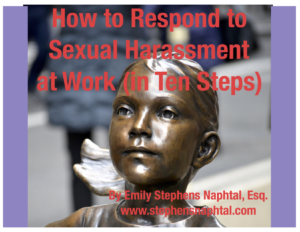7 Things You Should Know About Parental Leave
1. Less than 10% of U.S. employers offer fully paid parental leave to their employees.
A study conducted by the Families and Work Institute and the Society for Human Resource Management found that as of February 2016, only ten percent of employers offered full pay to employees on maternity leave. Fifty-eight percent of employers offer some replacement pay for time out on maternity leave. Even fewer employers offer fully paid paternity leave.
2. Many employees are entitled to take up to 12 weeks of unpaid leave under the FMLA after the birth or adoption of a child.
The Family and Medical Leave Act (FMLA) is a federal law that allows employees to take up to 12 weeks of unpaid leave per year. This leave could cover an employee recovering from pregnancy and/or bonding with a newborn or newly adopted child.
To be eligible, employees must:
- Work at a company location with at least 50 employees within a 75 mile radius;
- Work at a company that employed at least 50 employees for at least 20 weeks in the current or previous year;
- Have worked 1,250 hours during the previous year; and
- Have worked for the company for at least one year.
If the employee already used FMLA leave for an illness or other covered reason, they will not be able to use a full 12 weeks for parental leave.
Employees not covered by the FMLA should find out if there is an analogous state law that covers them.
3. New York has a paid parental leave law.
As of January 1, 2018, a new law will go into effect in New York, offering employees paid leave which will scale up over the course of four years as follows:
Employee payroll deductions will fund the statewide leave.
Employees who work for a New York employer who employed one employee for as little 30 days are eligible. Employees also must have worked for the employer for 20 or more hours per week for 26 consecutive weeks or on a part time basis for a 42 week period.
While on leave, employees will receive a maximum of 50% of their weekly wage each week in 2018. By 2021, they will receive a maximum of 67% of their weekly wage each week.
4. Few people have heard about New Jersey’s paid parental leave law.
In 2009, New Jersey passed a law that gives new parents six weeks off in which they can collect two thirds of their pay, capped at $633 per week as of 2017.
Similar to New York’s law, the benefits are funded by employee payroll deductions.
Despite the fact that this law is almost eight years old, a 2015 study conducted by National Center for Children in Poverty (NCCP) at Columbia University found that most parents did not know the law existed. Many parents who did know of its existence assumed they were ineligible for benefits under it because their employer never mentioned the law to them. Parents who did hear about the law struggled with the application process and other administrative hurdles.
Those parents who did claim the law’s benefits appreciated the help it gave them in caring for their new children.
5. Pregnant workers are entitled to accommodations similar to disabled and other non-pregnant employees.
Under Title VII of the Civil Rights Act of 1964, as amended by the Pregnancy Discrimination Act of 1978, employers must treat “women affected by pregnancy . . . the same for all employment-related purposes . . . as other persons not so affected but similar in their ability or inability to work,” 42 U.S.C. § 2000e(k).
In 2014, the Supreme Court held that, under this law, employers could not have a policy granting accommodations like light duty to workers with disabilities under the Americans with Disabilities Act but not to pregnant women. See Young v. United Parcel Serv., Inc., 135 S. Ct. 1338 (2015).
6. Many companies’ leave policies discriminate against biological fathers.
Policies often offer different amounts of time off for biological mothers, biological fathers, and parents who have recently adopted children. New parents require some leave time to bond with and care for their new children. The amount of this bonding time should be the same regardless of the sex of the employee. If the amount of time is not the same, the policy has codified sexual stereotypes that women should be their families’ primary caregivers. Biological mothers should receive more time off than other new parents to physically recover from giving birth; but the extra amount of time off must be related to the time actually needed for physical recovery.
As an example of the issues described above, CNN had to settle an Equal Employment Opportunity Commission charge with a former correspondent, Josh Levs, in 2013. Josh Levs, a new biological father, disputed CNN’s then-policy which provided ten weeks of paid leave to biological mothers, and parents of either gender who adopted children or used surrogates. CNN only offered two weeks of paid leave to biological fathers.
7. The law protects employees from discrimination based on pregnancy and caring for a new child.
Contact an attorney if your company terminated you, demoted you, or otherwise treated you worse because you became pregnant, inquired about workplace accommodations for your pregnancy, inquired about parental leave, or took parental leave.
Thanks for reading.
Please subscribe to receive more helpful employment law tips.






